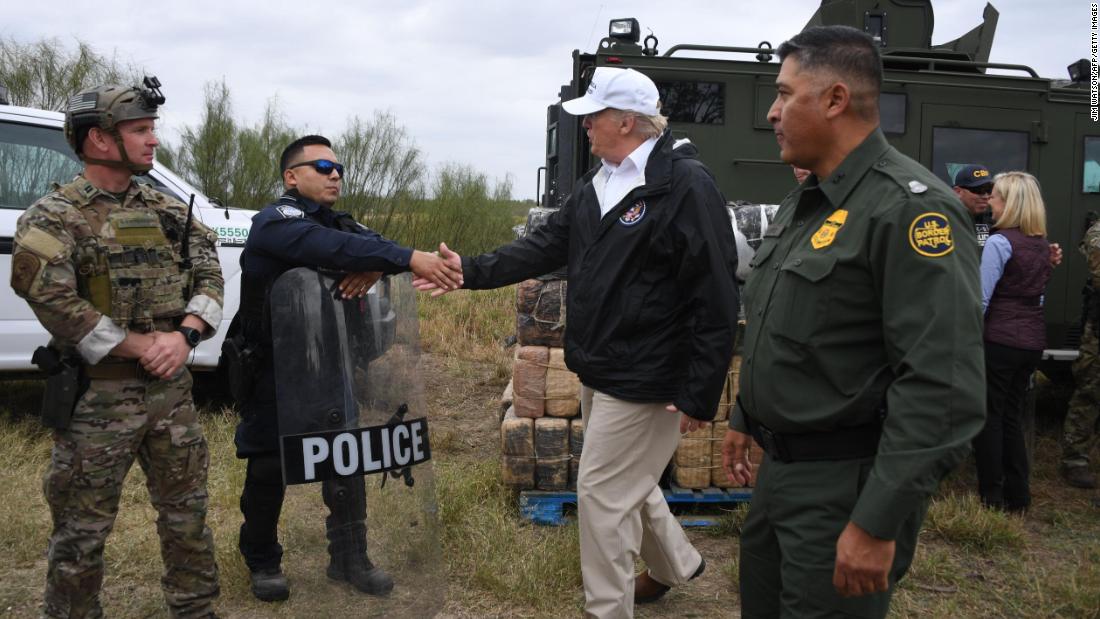[ad_1]
“That’s central casting,” he told reporters. “You can’t cast — you don’t have anybody in Hollywood that looks like these guys.”
“So you’ll be a movie star, the way you look,” Trump said.
Trump, a former beauty pageant owner, reality television star and product pitchman, has always been concerned with appearances. But it’s not your imagination: his public musings about how people look have become much more frequent since the first year of his presidency.
Looking the part
Whether it’s generals or first responders, Trump likes people he believes look the part and dismisses people he believes do not.
Trump referred to people as “central casting” five times in his first year in office, Factba.se’s numbers show. From late February 2018 to today, he has used “central casting” 23 times.
Some of Trump’s comments have been lighthearted passing compliments to people in a room with him, many of whom have responded appreciatively. In other cases, they have sounded more like a casting director’s clinical assessments.
“Look at them. Central casting,” he said while eyeing members of Turkish President Recep Tayyip Erdogan’s delegation during a bilateral meeting in June. “There’s no Hollywood set where you could produce people that look like them.”
“He’s got 10 people standing behind him. Every one is central casting. Central casting. Glasses, pad,” Trump said, raising his hands to his eyes to mime eyeglasses.
Letting loose
Trump’s supporters see an accessible leader who puts others at ease, a man admirably willing to say the obvious things other politicians would censor. His critics see a narcissist dangerously fixated on the superficial at the expense of the substantive, a man unwilling to discard antiquated stereotypes tinged with assumptions about masculinity and race.
Rick Wilson, a Republican consultant who is sharply critical of Trump, said the President’s compliments of men in uniform are a reflection of both his reality TV past and “his own personal sense of weakness.”
“They’re lean, they’re tough and they’re strong, and it’s all the polar opposite of a man who thinks that exercise is walking from the golf cart to the green,” Wilson said.
Michael D’Antonio, author of a 2015 biography of Trump and a CNN commentator, said Trump has always prioritized appearances in his hires, filling Trump Organization offices “with people he deemed good-looking.”
“This may be what gets him in trouble with these picks — emphasizing looks instead of record,” D’Antonio said. “But he never abandons a method that he has practiced with success in the past.”
[ad_2]
Source link


